
Daegu: South Korea's Hidden Gem
Nestled in the heart of South Korea, Daegu is a vibrant city known for its rich cultural heritage, modern attractions, and breathtaking natural landscapes. As the fourth-largest city in South Korea, Daegu offers a unique blend of traditional Korean charm and contemporary urban life. From ancient temples and bustling markets to serene parks and cutting-edge shopping malls, Daegu has something for every traveler. A must-visit in Daegu is the Seomun Market, one of the oldest and largest traditional markets in Korea. Here, you can experience the local culture first-hand, taste delicious street food, and shop for unique souvenirs. Another highlight is the Daegu Yangnyeongsi Museum of Oriental Medicine, where you can learn about the history and practice of traditional Korean medicine. For nature lovers, Apsan Park provides a perfect escape from the city's hustle and bustle. The park offers various hiking trails, a cable car ride, and panoramic views of Daegu from the top. Additionally, the city is famous for its vibrant festivals, including the Daegu International Opera Festival and the Daegu Chimac Festival, celebrating chicken and beer, which attract visitors from all over the world. Whether you're a history buff, a foodie, or an outdoor enthusiast, Daegu promises an unforgettable experience with its diverse attractions and warm hospitality.
Local tips in Daegu
- Visit Seomun Market early in the morning to avoid crowds and enjoy fresh street food.
- Take the cable car at Apsan Park for the best views of Daegu, especially at sunset.
- Explore the Daegu Yangnyeongsi Museum of Oriental Medicine for a unique cultural experience.
- Stay hydrated and wear comfortable shoes while exploring the city's numerous attractions.
- Attend the Daegu Chimac Festival in summer to enjoy local chicken dishes and beer.
Neighbourhoods in Daegu
Daegu: South Korea's Hidden Gem
Nestled in the heart of South Korea, Daegu is a vibrant city known for its rich cultural heritage, modern attractions, and breathtaking natural landscapes. As the fourth-largest city in South Korea, Daegu offers a unique blend of traditional Korean charm and contemporary urban life. From ancient temples and bustling markets to serene parks and cutting-edge shopping malls, Daegu has something for every traveler. A must-visit in Daegu is the Seomun Market, one of the oldest and largest traditional markets in Korea. Here, you can experience the local culture first-hand, taste delicious street food, and shop for unique souvenirs. Another highlight is the Daegu Yangnyeongsi Museum of Oriental Medicine, where you can learn about the history and practice of traditional Korean medicine. For nature lovers, Apsan Park provides a perfect escape from the city's hustle and bustle. The park offers various hiking trails, a cable car ride, and panoramic views of Daegu from the top. Additionally, the city is famous for its vibrant festivals, including the Daegu International Opera Festival and the Daegu Chimac Festival, celebrating chicken and beer, which attract visitors from all over the world. Whether you're a history buff, a foodie, or an outdoor enthusiast, Daegu promises an unforgettable experience with its diverse attractions and warm hospitality.
When is the best time to go to Daegu?
Iconic landmarks you can’t miss
Seomun Market
Experience the heart of Daegu at Seomun Market, where tradition meets modernity in a vibrant atmosphere of food and culture.
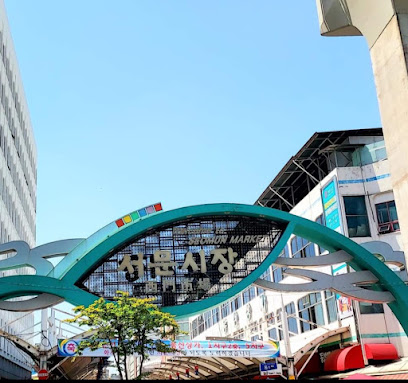
Kim Gwang-Seok Street
Explore the artistic vibes of Kim Gwang-Seok Street in Daegu, a cultural hub celebrating music, art, and local delicacies.
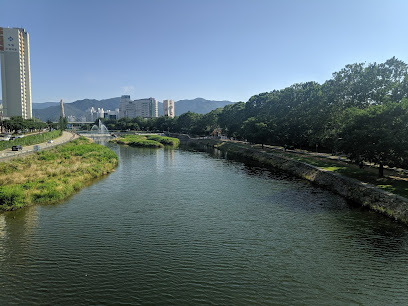
E-World
Discover the excitement of E-World, Daegu's premier theme park, filled with thrilling rides, cultural shows, and delightful dining experiences for all ages.
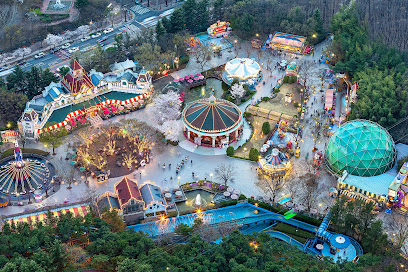
Daegu 83 Tower
Discover the stunning views of Daegu and beyond at the iconic Daegu 83 Tower, a premier observation deck and tourist attraction.
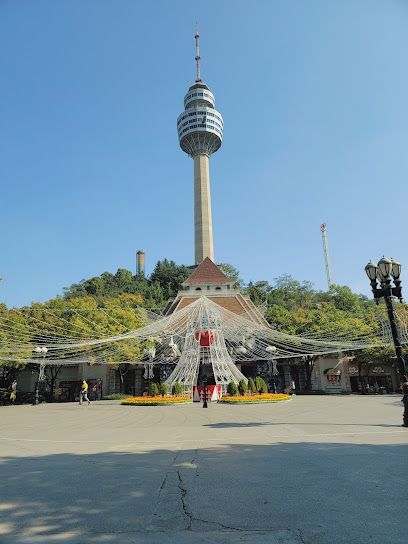
대구 팔공산 갓바위
Discover the serene beauty and historical significance of Gatbawi, a stunning stone Buddha in Daegu, South Korea, perfect for spiritual seekers and nature lovers.
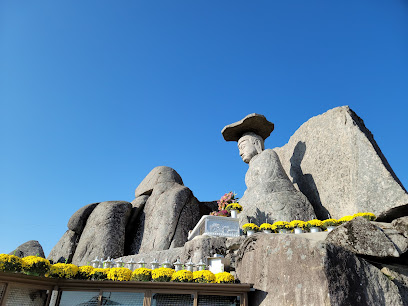
The ARC
Explore The ARC in Daegu, a cultural center where art, architecture, and community converge to create an enriching experience for all visitors.
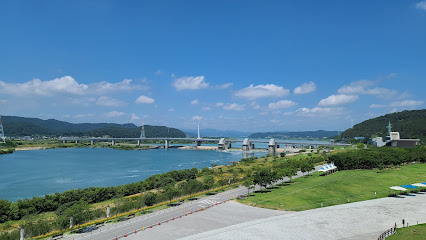
Daegu Dalseong Park
Discover the tranquility of Daegu Dalseong Park, where nature meets history in a serene urban oasis.
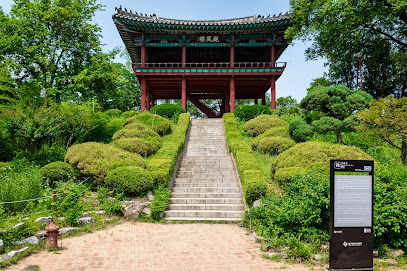
Daegu Arboretum
Experience the serene beauty and diverse flora of Daegu Arboretum, a perfect escape for nature lovers and tourists seeking tranquility.
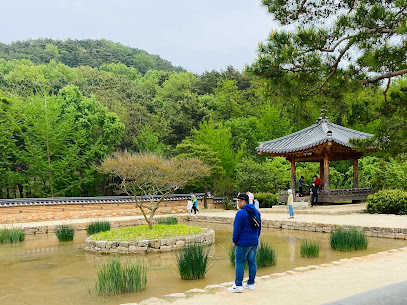
Chilseong Market
Discover the vibrant flavors and local culture at Chilseong Market, Daegu's bustling hub for traditional Korean food and unique shopping experiences.
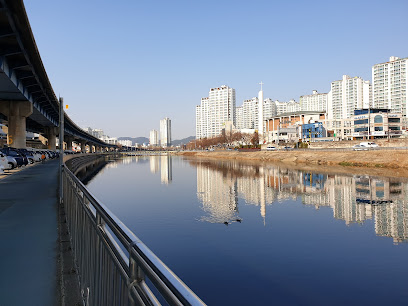
February 28th Jungang Memorial Park
Explore the serene February 28th Jungang Memorial Park in Daegu, a significant site honoring the struggle for democracy with beautiful landscapes and rich history.
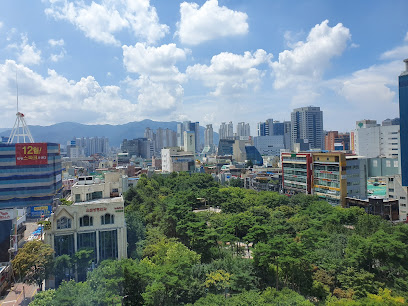
Daegu National Science Museum
Discover the Daegu National Science Museum, where science comes alive through interactive exhibits, engaging programs, and an inspiring planetarium experience.
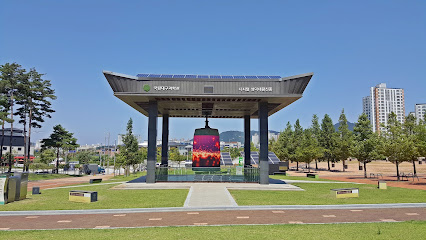
Palgongsan Cable Car
Experience breathtaking views and adventure at the Palgongsan Cable Car, a premier tourist attraction in Daegu, South Korea.
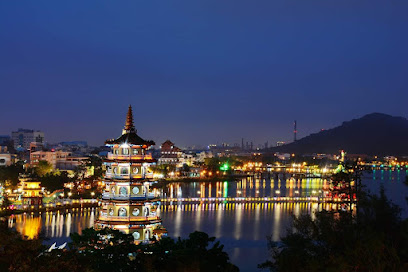
Dongchon Recreation Area
Explore the Dongchon Recreation Area in Daegu, a tranquil urban park perfect for nature lovers, families, and cultural enthusiasts seeking relaxation and beauty.
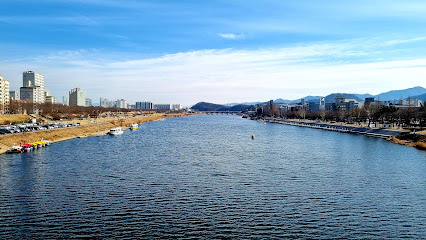
Apsan Observatory
Experience breathtaking panoramic views of Daegu from Apsan Observatory, a stunning tourist attraction nestled in nature's embrace.
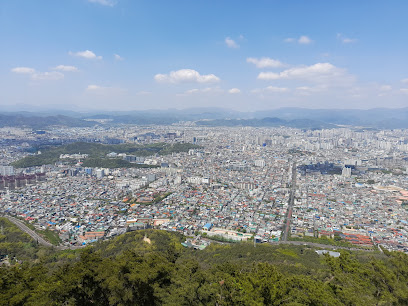
Donghwasa
Experience the tranquility of Donghwasa, a stunning Buddhist temple in Daegu, where history and spirituality meet amidst breathtaking natural beauty.
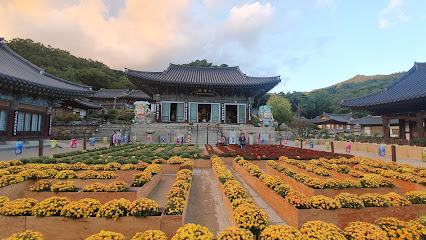
Unmissable attractions to see
Kim Gwang-Seok Street
Discover the vibrant Kim Gwang-Seok Street in Daegu, where art, music, and Korean culture come alive through stunning murals and lively performances.
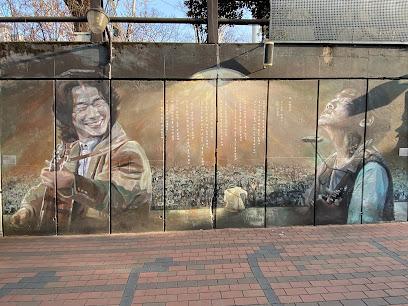
Songhae Park
Discover the tranquil beauty of Songhae Park in Daegu, where nature and community come together for unforgettable experiences.
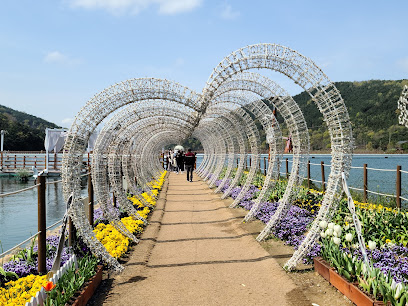
Daegu 83 Tower
Discover stunning views and vibrant experiences at Daegu 83 Tower, a must-visit observation deck in Daegu, South Korea.
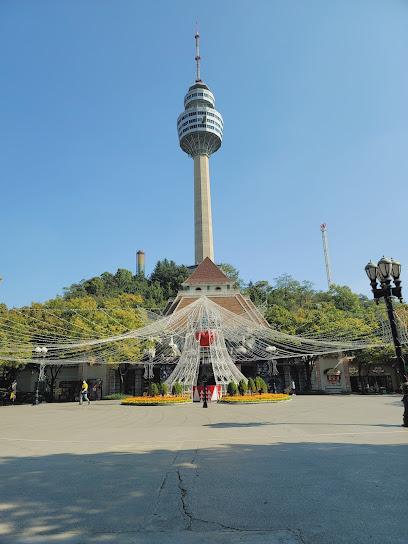
대구 팔공산 갓바위
Explore the ancient beauty of Donggu Hyanggyo, a serene Confucian school in Daegu, where history and tranquility intertwine.
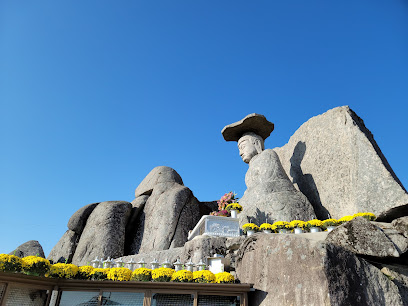
Haeinsa Temple
Discover the serene beauty and rich heritage of Haeinsa Temple, a UNESCO World Heritage Site in Gyeongsangnam-do, South Korea.
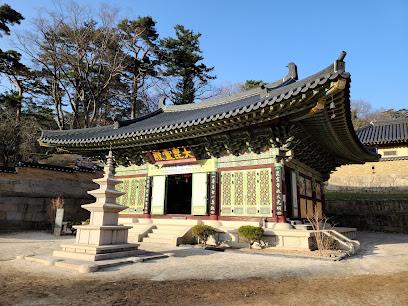
The ARC
Discover The ARC in Daegu: An architectural gem that merges art and nature, offering enriching cultural experiences and serene landscapes.
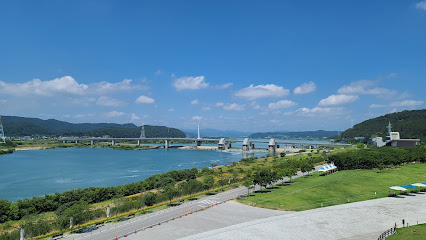
Moonlight waterside park
Discover serenity at Moonlight Waterside Park in Daegu, where nature's beauty and calm waters create an idyllic retreat for relaxation and recreation.
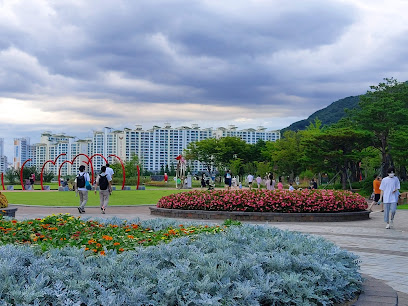
Daegu Arboretum
Explore the Daegu Arboretum, a botanical sanctuary in Daegu, where nature comes alive with stunning flora and peaceful landscapes for all to enjoy.
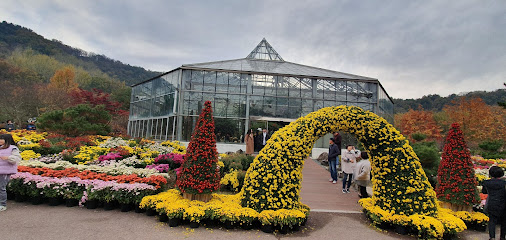
Unmunsa
Discover the tranquil beauty and rich heritage of Unmunsa, a revered Buddhist temple nestled in the serene hills of Gyeongsangbuk-do, South Korea.
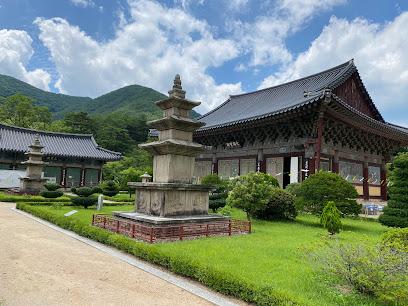
Daegu National Science Museum
Explore the Daegu National Science Museum, a hub of innovation and learning where science comes to life through interactive exhibits and engaging programs.
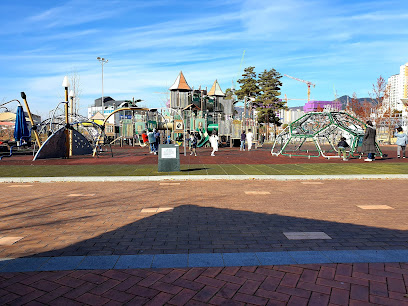
Dongchon Recreation Area
Explore the beauty of Dongchon Recreation Area, a serene park in Daegu offering picturesque landscapes and a perfect retreat for nature lovers.
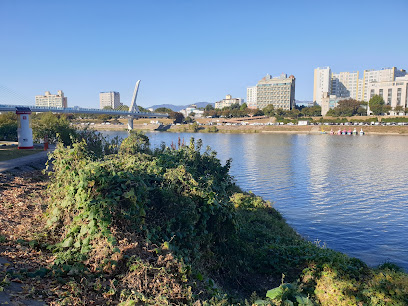
Pyochungsa Temple
Experience tranquility at Pyochungsa Temple, a stunning Buddhist sanctuary in Miryang, Gyeongsangnam-do, rich in culture and spiritual significance.
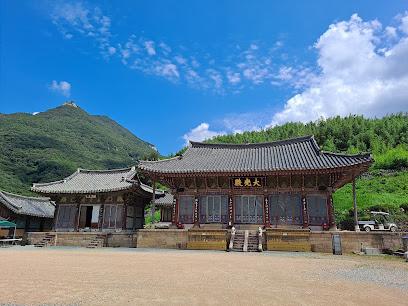
Daegu Aquarium
Explore the enchanting world of marine life at Daegu Aquarium, a captivating destination in South Korea featuring diverse species and interactive exhibits.
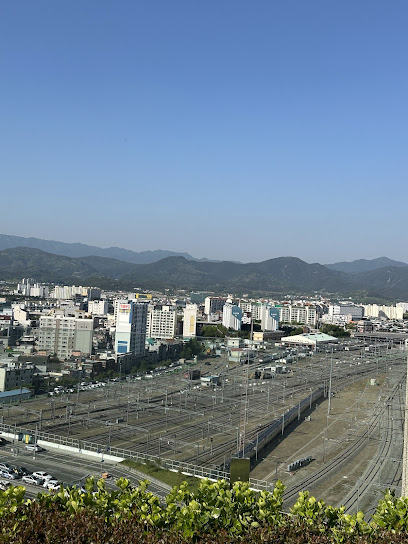
Yeongnamnu
Explore Yeongnamnu in Miryang, a stunning heritage site that showcases traditional Korean architecture and breathtaking natural beauty.
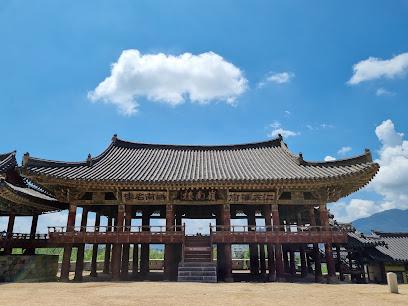
Daegu National Museum
Explore Korea's rich history and cultural heritage at the Daegu National Museum, a premier destination for tourists in Daegu.
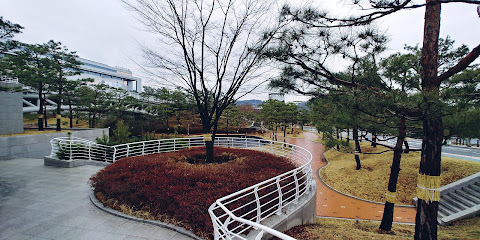
Essential places to dine
Doma 29
Experience authentic Japanese cuisine at Doma 29, Daegu's premier destination for exquisite sushi and fresh flavors.
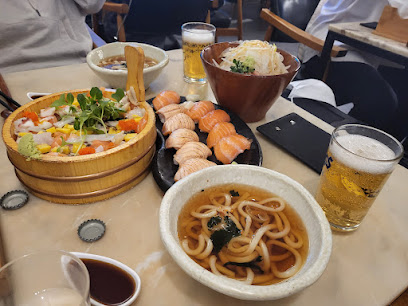
Gukil Ttaro Gukbob
Experience authentic Korean cuisine at Gukil Ttaro Gukbob in Daegu – where tradition meets flavor.
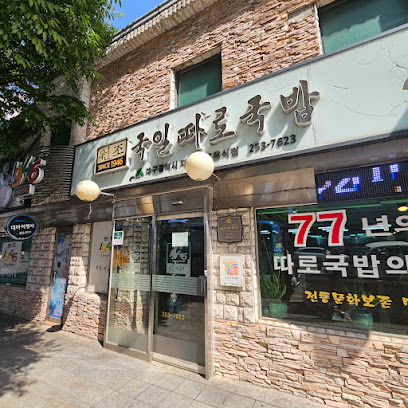
Taesan Mandu
Experience the authentic taste of Korea at Taesan Mandu - where every dumpling tells a story of tradition and flavor.
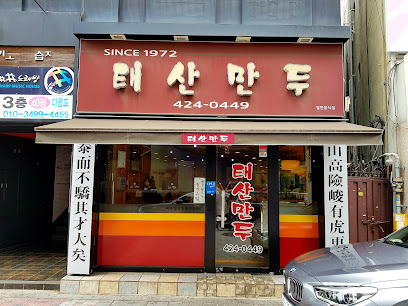
Jungang Tteokbokki
Experience authentic Korean street food at Jungang Tteokbokki in Daegu – home to delicious tteokbokki that tantalizes your taste buds.
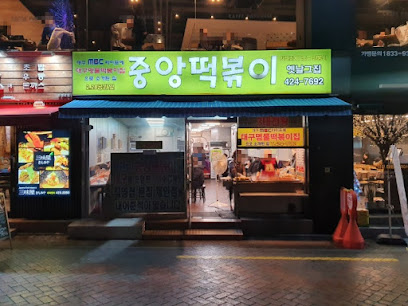
La Salud
Discover La Salud in Daegu - where gourmet burgers meet exceptional flavor and quality in a cozy dining atmosphere.
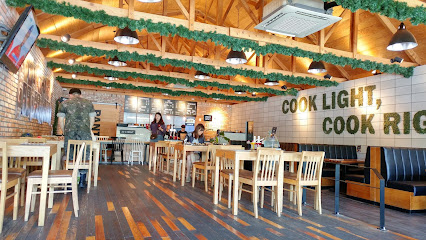
Junghwa Chinese Restaurant
Discover authentic Chinese cuisine at Junghwa Chinese Restaurant in Daegu—where flavor meets tradition in every dish.
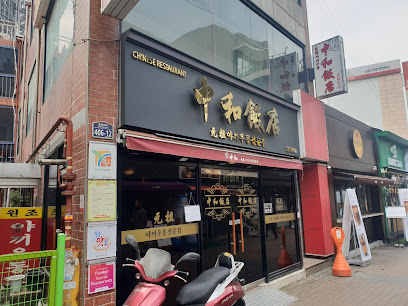
Dangol Sikdang
Experience authentic bulgogi at Dangol Sikdang in Daegu – where delicious meets affordable in a cozy atmosphere.
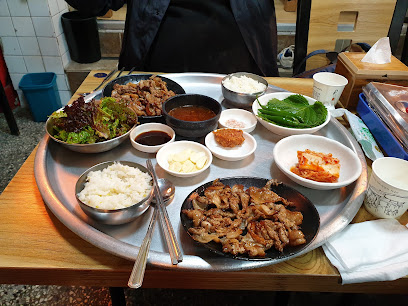
Atrium
Indulge in exquisite haute French cuisine at Atrium in Daegu – where elegance meets culinary artistry.
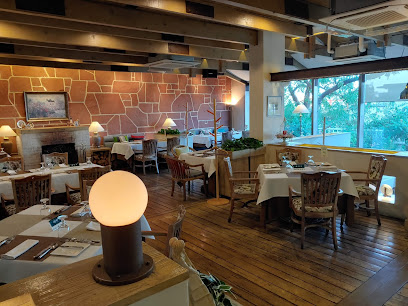
Gyeongbok Palace Daegu
Experience authentic Korean flavors at Gyeongbok Palace Daegu—where tradition meets culinary excellence in every bite.
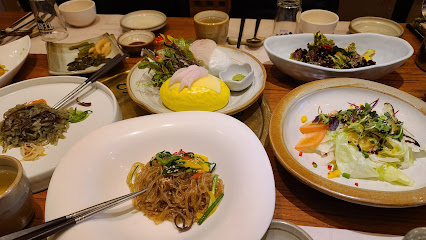
Wanggeomi Restaurant
Experience authentic Korean beef at Wanggeomi Restaurant in Daegu – where tradition meets flavor.
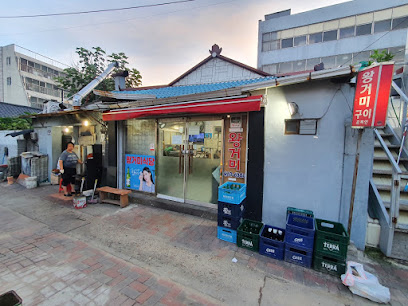
Boi Brasil Daegu
Savor the taste of Brazil at Boi Brasil Daegu - where authentic flavors meet a vibrant dining atmosphere.
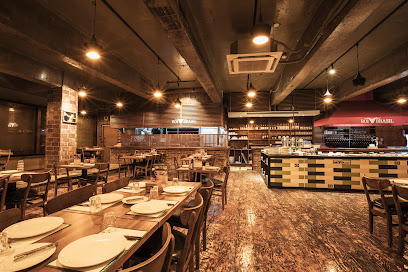
Bongsan Jjimgalbi蒸烤排骨(동인동찜갈비)
Discover authentic Korean flavors at Bongsan Jjimgalbi - indulge in exquisite jjimgalbi and experience Daegu's vibrant culinary scene.
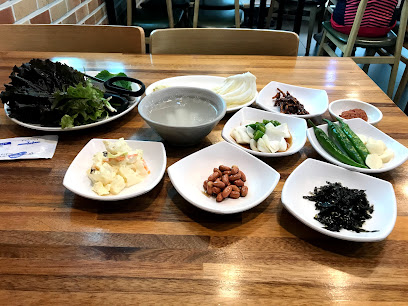
Vinplus
Experience authentic Italian cuisine at Vinplus in Daegu - where traditional flavors meet modern dining.
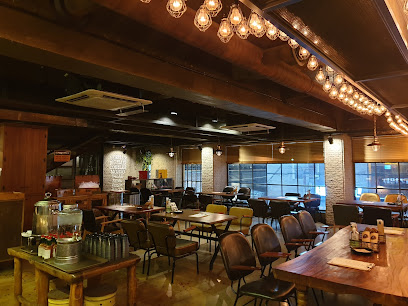
하이타이 [Hi Thai]
Experience the vibrant tastes of Thailand at Hi Thai in Daegu—where every dish tells a story.
![하이타이 [Hi Thai]](https://evendo-location-media.s3.amazonaws.com/RestaurantImages/77f9a5c6-897c-41a5-88b8-7af5a6071bc3)
Into
Discover authentic Mediterranean flavors at Into in Daegu - where every dish tells a story.
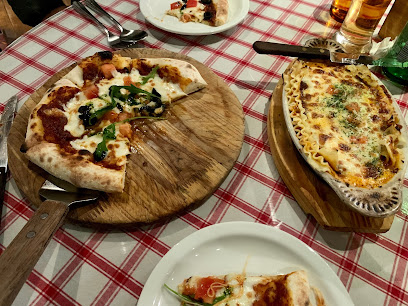
Markets, malls and hidden boutiques
Shinsegae Department Store Daegu
Discover luxury shopping at Shinsegae Department Store Daegu, featuring exquisite jewelry, fashion, and gifts in an elegant atmosphere.
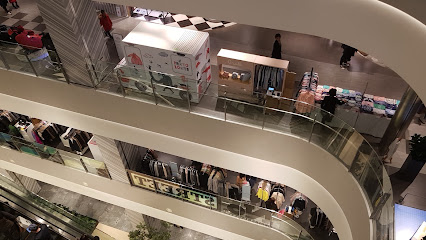
The Hyundai Daegu
Experience the ultimate shopping adventure at The Hyundai Daegu, where fashion meets tradition in the heart of South Korea.
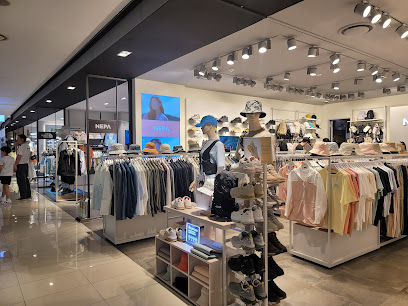
Lotte Outlets Esiapolis Branch
Discover a world of brands at Lotte Outlets Esiapolis Branch in Daegu, where shopping meets dining and entertainment.
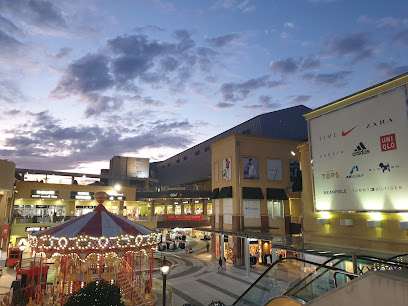
Lotte Department Store Daegu
Experience a shopper's paradise at Lotte Department Store Daegu, where high fashion meets local culture and gourmet delights.
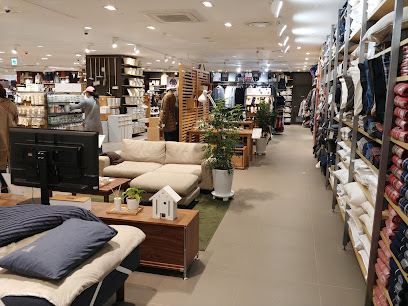
Donga Department
Discover the essence of Korean shopping at Donga Department Store, Daegu's vibrant retail hub with a variety of fashion, electronics, and local delicacies.
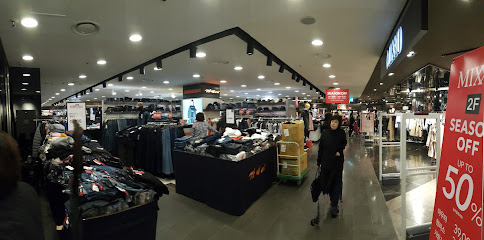
Debec Plaza
Discover the vibrant shopping and dining experience at Debec Plaza in Daegu, Korea's premier department store destination.
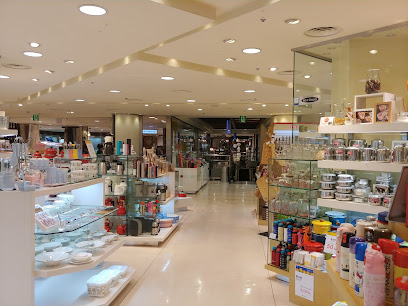
MODA Outlet
Discover unbeatable deals and a vast selection of fashion at MODA Outlet, Daegu's top destination for savvy shoppers.
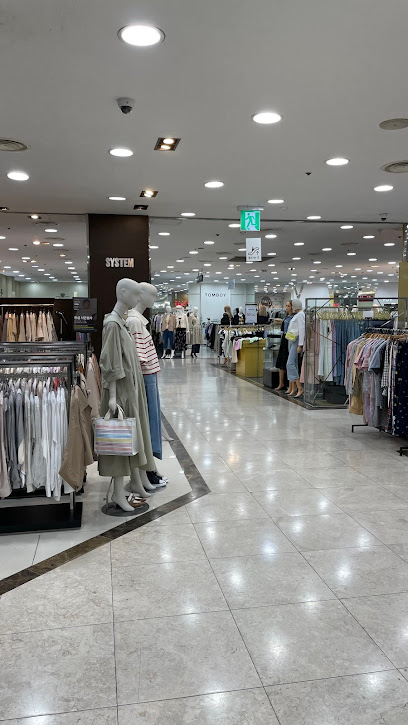
Hyundai City Outlet
Explore the best of shopping at Hyundai City Outlet in Daegu, where local flair meets international brands in a vibrant atmosphere.
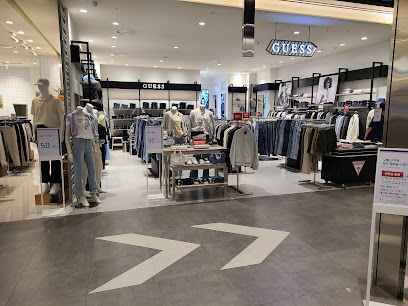
NC Outlet
Experience the vibrant shopping culture at NC Outlet, featuring diverse brands, dining options, and exciting events in Daegu.
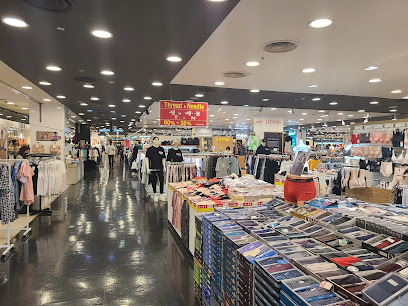
Comic Plaza
Discover an expansive collection of comics and novels at Comic Plaza, Daegu's premier bookstore and pop culture haven.
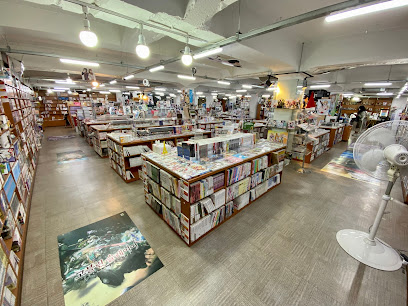
S Dot
Discover the artistic charm of S Dot in Daegu, a vibrant stationery store and DIY haven that inspires creativity and imagination.
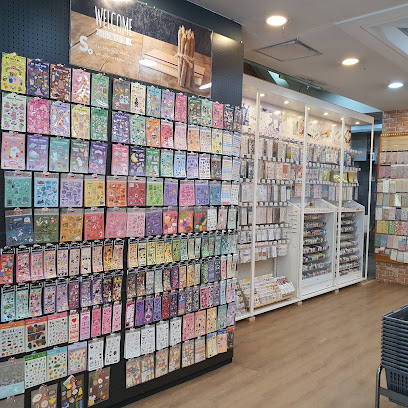
Queen's Road
Explore Queen's Road, the ultimate outlet mall in Daegu offering diverse shopping, dining, and entertainment experiences for all visitors.
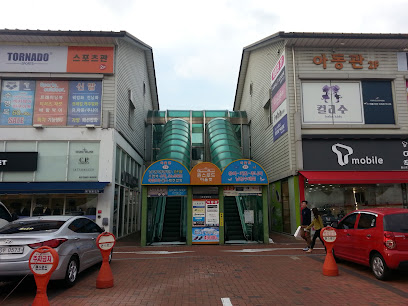
Gundam base Daegu
Discover the ultimate Gundam experience at Gundam Base Daegu, where anime enthusiasts find a treasure trove of models, merchandise, and creativity.
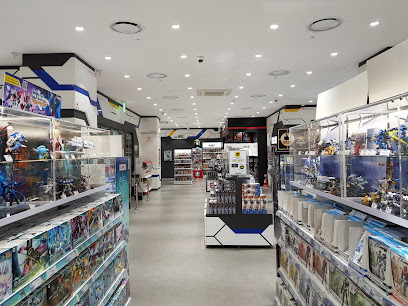
Daehyun Primall
Explore Daehyun Primall, Daegu's premier shopping mall featuring diverse stores, delicious dining, and entertainment for an unforgettable experience.
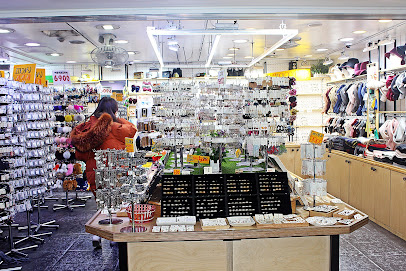
Kakao Friends
Explore the whimsical Kakao Friends gift shop in Daegu, where playful character merchandise brings joy to every visitor and unique souvenirs await discovery.
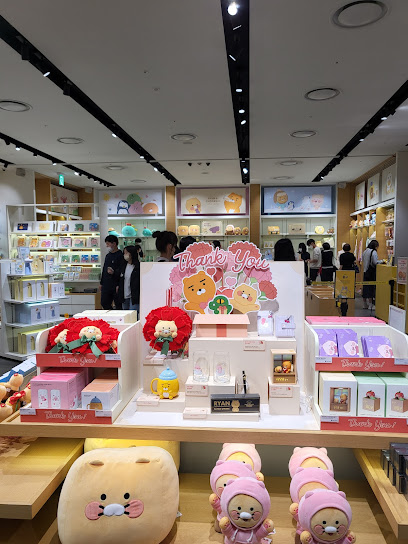
Essential bars & hidden hideouts
Thursday Party
Experience the vibrant nightlife of Daegu at Thursday Party, a lively bar known for great drinks, music, and unforgettable nights out.
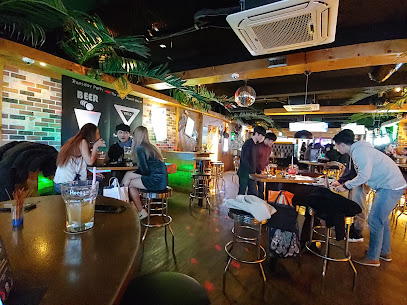
이토스
Immerse yourself in the energetic nightlife at 이토스 Pub, Daegu's favorite spot for drinks, snacks, and unforgettable experiences.
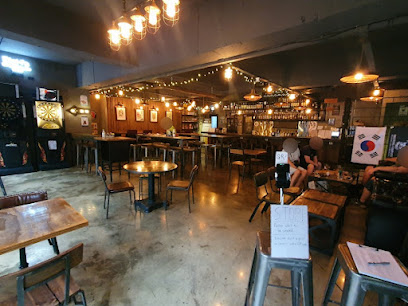
brewers brothers
Discover the vibrant atmosphere of Brewers Brothers, a must-visit pub in Daegu, offering a wide selection of craft beers and a taste of local culture.
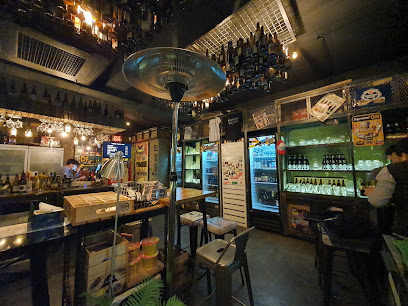
La Vida Loca
Discover the vibrant nightlife of Daegu at La Vida Loca, where innovative cocktails and lively ambiance create unforgettable moments.
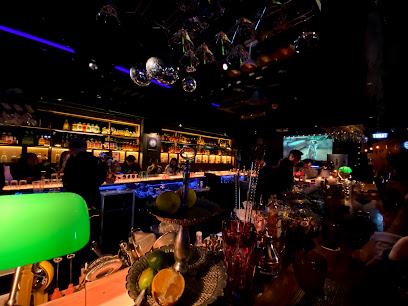
Monsters Craft Beer
Experience the vibrant craft beer scene at Monsters Craft Beer in Daegu, offering a unique selection and a lively atmosphere for all visitors.
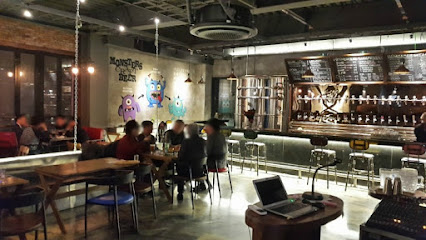
Los Cubanos
Discover the electric atmosphere of Los Cubanos, a vibrant bar in Daegu, South Korea, where unforgettable nights await with great drinks and music.
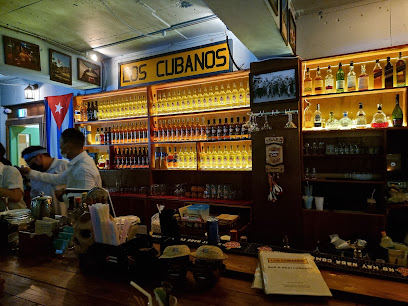
Percent Craft Beer
Explore the vibrant world of craft beer at Percent Craft Beer in Daegu, offering a unique selection of local and international brews in a cozy atmosphere.
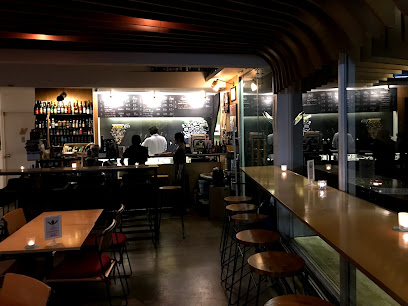
바바렐라
Experience the vibrant nightlife of Daegu at Barbarella, where creative cocktails and a lively atmosphere await.
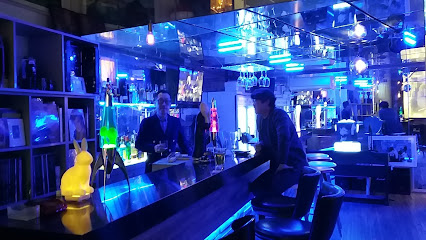
Dosibam
Experience the best of Chinese cuisine and innovative cocktails at Dosibam, Daegu's vibrant dining destination.
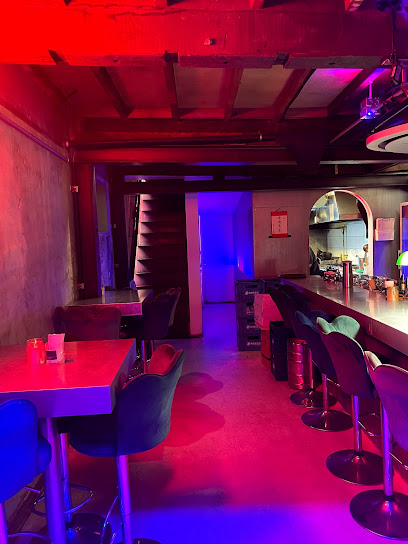
EASYS PUB
Discover the vibrant atmosphere and delicious grilled dishes at EASYS PUB, the perfect spot for nightlife and local flavors in Daegu.
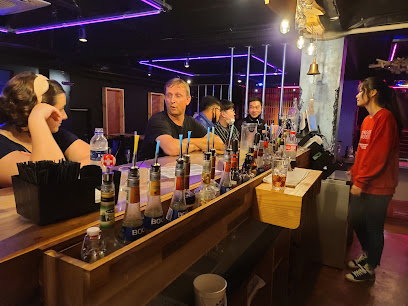
Who's Bob
Discover the vibrant nightlife of Daegu at Who's Bob, a lively bar offering delicious drinks and a friendly atmosphere for every visitor.

Daegu Bar GOGO PUB
Discover the lively nightlife at Daegu Bar GOGO PUB, offering a vibrant atmosphere, great cocktails, and an unforgettable experience in the heart of Daegu.
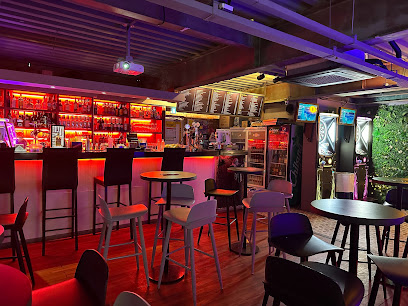
After B1
After B1: Discover a vibrant bar in Daegu offering innovative cocktails and a lively atmosphere for an unforgettable night out.
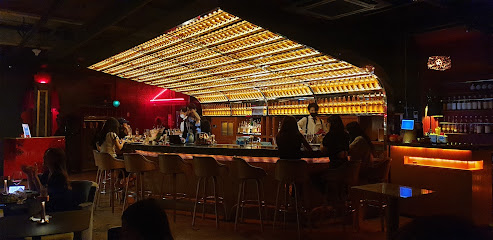
Brown Bricks
Experience the vibrant nightlife of Daegu at Brown Bricks, a lively bar offering a wide selection of drinks and a welcoming atmosphere.
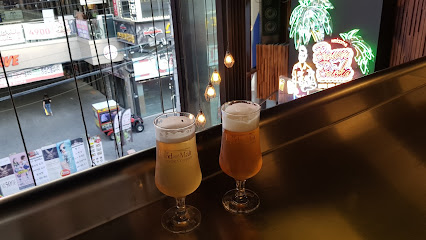
Local Phrases
-
- Hello안녕하세요
[annyeonghaseyo] - Goodbye안녕히 가세요
[annyeonghi gaseyo] - Yes네
[ne] - No아니요
[aniyo] - Please/You're welcome부탁합니다/천만에요
[butakhamnida/cheonmaneyo] - Thank you감사합니다
[gamsahamnida] - Excuse me/Sorry죄송합니다
[joesonghamnida] - How are you?어떻게 지내세요?
[eotteoke jinaeseyo?] - Fine. And you?잘 지내고 있어요. 당신은?
[jal jinaego isseoyo. dangsineun?] - Do you speak English?영어 할 수 있어요?
[yeongeo hal su isseoyo?] - I don't understand이해하지 못해요
[ihaehaji mothaeyo]
- Hello안녕하세요
-
- I'd like to see the menu, please메뉴를 보고 싶어요, 부탁합니다
[menyureul bogo sipseoyo, butakhamnida] - I don't eat meat고기를 먹지 않아요
[gogireul meokji anayo] - Cheers!건배!
[geonbae!] - I would like to pay, please지불하고 싶어요, 부탁합니다
[jibulhago sipseoyo, butakhamnida]
- I'd like to see the menu, please메뉴를 보고 싶어요, 부탁합니다
-
- Help!도와주세요!
[dowajuseyo!] - Go away!가세요!
[gaseyo!] - Call the Police!경찰을 불러주세요!
[gyeongchareul bulleojuseyo!] - Call a doctor!의사를 불러주세요!
[uisareul bulleojuseyo!] - I'm lost길을 잃었어요
[gireul ilheosseoyo] - I'm ill아파요
[apayo]
- Help!도와주세요!
-
- I'd like to buy...구입하고 싶어요...
[guibhago sipseoyo...] - I'm just looking그냥 둘러보고 있어요
[geunyang dulleobogo isseoyo] - How much is it?얼마에요?
[eolmaeyo?] - That's too expensive너무 비쌉니다
[neomu bissamnida] - Can you lower the price?가격을 줄일 수 있어요?
[gageoreul julil su isseoyo?]
- I'd like to buy...구입하고 싶어요...
-
- What time is it?지금 몇 시에요?
[jigeum myeot sieyo?] - It's one o'clock한 시에요
[han sieyo] - Half past (10)10시 반
[sip si ban] - Morning아침
[achim] - Afternoon오후
[ohu] - Evening저녁
[jeonyeok] - Yesterday어제
[eoje] - Today오늘
[oneul] - Tomorrow내일
[naeil] - 1하나
[hana] - 2둘
[dul] - 3셋
[set] - 4넷
[net] - 5다섯
[daseot] - 6여섯
[yeoseot] - 7일곱
[ilgop] - 8여덟
[yeodeol] - 9아홉
[ahop] - 10열
[yeol]
- What time is it?지금 몇 시에요?
-
- Where's a/the...?...이 어디 있어요?
[...i eodi isseoyo?] - What's the address?주소가 뭐에요?
[jusoga mwoeyo?] - Can you show me (on the map)?지도로 보여주세요?
[jidoro boyeojuseyo?] - When's the next (bus)?다음 버스는 언제와요?
[daeum beoseuneun eonjewayo?] - A ticket (to ....)표 한 장 (....으로)
[pyo han jang (....euro)]
- Where's a/the...?...이 어디 있어요?
History of Daegu
-
Daegu, known historically as Daegaya, has roots that trace back to the prehistoric era. Archaeological findings in the area, such as pottery and tools, suggest that human settlements existed here as early as the Neolithic Age. The region was a significant cultural and political hub during the Three Kingdoms period, particularly under the influence of the Silla Kingdom.
-
During the Goryeo Dynasty (918–1392), Daegu became a prominent center for Buddhism. Numerous temples and pagodas were constructed, many of which still stand today as testament to the city's religious heritage. The city's strategic location made it a critical site for trade and cultural exchange, further enriching its historical tapestry.
-
In the Joseon Dynasty (1392–1897), Daegu emerged as an important site for Confucian scholarship and administration. The establishment of Hyanggyo (Confucian schools) and Seowon (private academies) in the city fostered an environment of intellectual growth. The city's layout and architecture from this period reflect Confucian principles, emphasizing harmony and order.
-
Daegu was significantly impacted during the Japanese colonial period (1910–1945). The city became a focal point for resistance movements, with many local leaders participating in the independence struggle. The legacy of this period is still visible in the form of memorials and preserved sites that honor the city's resilience and determination.
-
Post-Korean War, Daegu rapidly industrialized, becoming a major center for the textile industry. The city's economy diversified over the following decades, incorporating electronics, machinery, and automotive industries. This period of growth transformed Daegu into one of South Korea's key economic powerhouses.
-
In recent decades, Daegu has experienced a cultural renaissance. The city is renowned for its vibrant festivals, including the Daegu International Musical Festival and the Daegu Yangnyeongsi Herb Medicine Culture Festival. Daegu is also recognized for its contributions to K-pop and fashion, with numerous cultural venues and shopping districts attracting visitors from around the world.
-
Daegu is home to numerous historical landmarks that reflect its rich heritage. Notable sites include the Donghwasa Temple, Palgongsan Mountain, and the Daegu Yangnyeongsi Herb Medicine Market. These landmarks offer a glimpse into the city's past, showcasing its religious, cultural, and commercial significance.
Daegu Essentials
-
Daegu is well-connected by air, rail, and road. The nearest airport is Daegu International Airport, which has domestic flights and a few international connections. Alternatively, you can fly into Incheon International Airport or Gimhae International Airport and take a train or bus to Daegu. The KTX high-speed train from Seoul to Daegu takes about 1.5 hours. Buses from various cities in South Korea also frequently travel to Daegu.
-
Daegu offers a comprehensive public transportation system, including buses, subways, and taxis. The Daegu Metro has three lines that cover most of the city. Public buses are also convenient for getting around. Taxis are readily available and relatively inexpensive compared to Western standards. For more flexibility, consider renting a car, but be aware of local driving customs and regulations.
-
The official currency is the South Korean Won (KRW). Credit cards are widely accepted in most hotels, restaurants, and shops. However, it's advisable to carry some cash for smaller establishments and street vendors. ATMs are widely available, and many offer services in English. Be sure to notify your bank of your travel plans to avoid any issues with card usage.
-
Daegu is generally a safe city for tourists. Violent crime is rare, but petty crimes like pickpocketing can occur in crowded areas. Areas like Dongseongno Street and Seomun Market are popular spots where tourists should be vigilant. Avoid walking alone in poorly lit areas at night. Always keep an eye on your belongings and be cautious when using public Wi-Fi networks.
-
In case of emergency, dial 112 for police assistance and 119 for fire and medical emergencies. English-speaking operators are available. Major hospitals, such as Kyungpook National University Hospital, have emergency services and can accommodate foreigners. Pharmacies are plentiful, and many have staff who speak basic English. It's advisable to have travel insurance that covers medical emergencies.
-
Fashion: Do dress modestly, especially when visiting temples or religious sites. Avoid overly revealing clothing. Religion: Do show respect in religious places by removing your shoes and speaking softly. Public Transport: Do give up your seat to elderly passengers. Don’t talk loudly or eat on the subway. Greetings: Do bow slightly when greeting someone. A handshake is also acceptable but less common. Eating & Drinking: Do try local foods and be open to new flavors. Don’t leave food on your plate, as it is considered wasteful.
-
To experience Daegu like a local, visit the traditional markets such as Seomun Market, where you can find local foods and crafts. Take a stroll through Apsan Park for scenic views and hiking trails. Try the local specialty, Makchang (grilled beef or pork entrails). For a night out, head to the vibrant Dongseongno Street, filled with shops, cafes, and entertainment options. Engage with locals, as they are generally friendly and willing to share tips and stories about the city.
Nearby Cities to Daegu
-
Things To Do in Gyeongju
-
Things To Do in Ulsan
-
Things To Do in Pohang
-
Things To Do in Busan
-
Things To Do in Andong
-
Things To Do in Daejeon
-
Things To Do in Jeonju
-
Things To Do in Suncheon
-
Things To Do in Gwangju
-
Things To Do in Suwon
-
Things To Do in Mokpo
-
Things To Do in Seoul
-
Things To Do in Chuncheon
-
Things To Do in Incheon
-
Things To Do in Fukuoka














